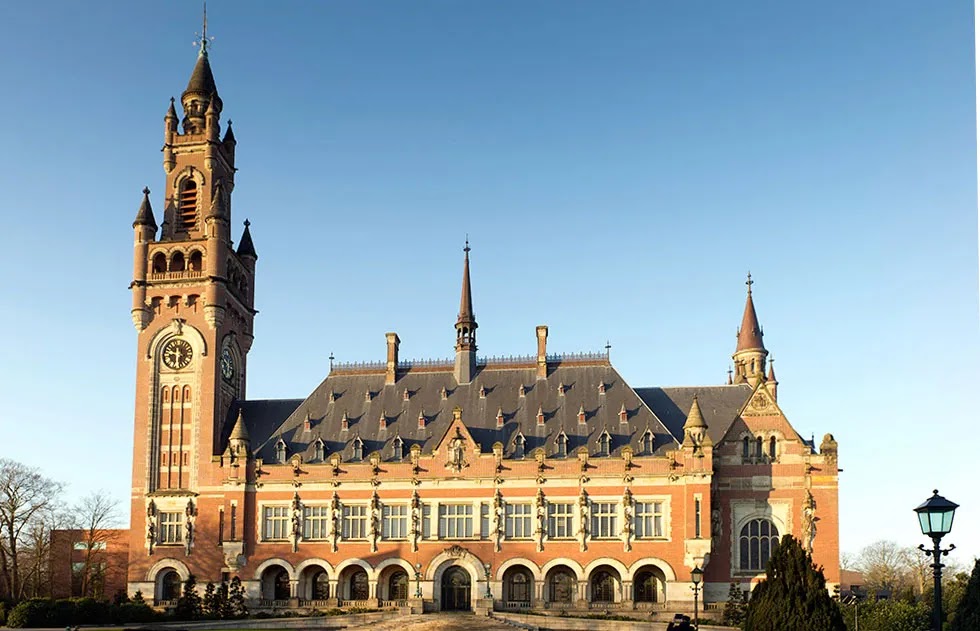
International Court of Justice: Navigating the Pillars of
Global Justice
The International Court of Justice (ICJ), established in
1945, stands as the principal judicial organ of the United Nations. Comprising
15 judges elected for nine-year terms, the ICJ plays a vital role in
maintaining international peace and justice. In this article, we will delve
into the intricate functions of the ICJ, exploring its history, jurisdiction,
impact on international relations, and much more.
Establishment and Structure of the ICJ
The ICJ's roots trace back to the aftermath of World War II,
with its establishment intended to prevent conflicts through legal means. The
court's composition reflects a diverse range of legal experts from different
countries, ensuring a fair and unbiased approach to its proceedings.
Jurisdiction and Advisory Opinions
Operating within the framework of international law, the ICJ
exercises jurisdiction over legal disputes between states and provides advisory
opinions on legal questions referred by the UN General Assembly, Security
Council, or specialized agencies.
Role in Settling Disputes
One of the primary functions of the ICJ is to serve as a
forum for the peaceful resolution of international disputes. Over the years, it
has adjudicated numerous cases, contributing to the resolution of conflicts and
the maintenance of global harmony.
Importance of Legal Framework
The ICJ's decisions hold significant weight in the
international legal landscape. Its adherence to established legal frameworks
fosters a sense of order and predictability, crucial for diplomatic relations
and the prevention of conflicts.
Enforcement of ICJ Decisions
While the ICJ's decisions are binding, challenges often
arise in their enforcement. Collaborative efforts with international bodies and
states are essential to ensure effective implementation and compliance.
Critiques and Controversies
Despite its noble mission, the ICJ has faced criticisms
regarding its efficiency, impartiality, and political influences. Examining
controversial cases sheds light on the challenges the court encounters.
Evolution and Adaptation
The ICJ has evolved to address contemporary global
challenges. Its ability to adapt and embrace changes ensures its continued
relevance in an ever-changing world.
Influence on International Relations
The ICJ's decisions resonate in the realm of international
relations, influencing diplomatic ties and shaping the conduct of states on the
global stage. Understanding this impact is key to appreciating the court's
role.
Landmark Cases
Several landmark cases have shaped the ICJ's jurisprudence.
Exploring these cases provides insights into the court's contributions to the
development of international law.
Future Challenges and Prospects
In a rapidly changing world, the ICJ faces challenges that
demand innovative solutions. Assessing these challenges and exploring future
prospects is essential for the court's continued effectiveness.
ICJ and Human Rights
The ICJ's commitment to upholding human rights is evident in
its handling of cases related to these issues. Examining such cases showcases
the court's role in safeguarding fundamental human rights.
Transparency and Accountability
Efforts to enhance transparency in ICJ proceedings
contribute to public trust. Additionally, accountability mechanisms ensure the
court operates with integrity and fairness.
Collaboration with Other International Organizations
Partnerships with organizations like the United Nations
strengthen the ICJ's impact. Examining collaborative efforts sheds light on the
achievements and areas for improvement in these partnerships.
Conclusion
In conclusion, the International Court of Justice remains a
cornerstone of global justice and peace. Its multifaceted role, from settling
disputes to shaping international law, underscores its importance in fostering
a world built on principles of fairness and legality.
Frequently Asked Questions (FAQs)
- Is
the International Court of Justice the highest court globally?
- No,
the ICJ is the principal judicial organ of the United Nations but not the
highest court globally.
- How
are ICJ judges appointed?
- ICJ
judges are elected by the UN General Assembly and Security Council.
- What
happens if a state refuses to comply with an ICJ decision?
- While
ICJ decisions are binding, enforcement relies on collaboration with
states and international bodies.
- Can
individuals bring cases to the ICJ?
- Generally,
only states have standing to bring cases before the ICJ, but certain UN
bodies and agencies can also do so.
- How
does the ICJ contribute to international law development?
- The
ICJ contributes to international law by establishing precedents and
interpreting legal principles in its judgments.





0 Comments